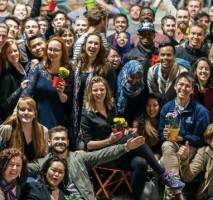June 13, 2016
Culture change needed to stem senior female executive attrition rate 0
 With less than 10 percent of FTSE 100 companies in this country having a female CEO, a cross party group of MPs from the Women and Equalities Select Committee have been enquiring into ways of increasing the significant under-representation of women at executive levels. The introduction of quotas and regulation has been suggested to address this lack of gender diversity. In its submission to the committee consultant’s Mercer argue that although measures such as quotas can have a visible impact in the short term, the most effective and sustainable way of getting women into senior and executive roles is by focusing on growing and developing a pipeline of female talent in an enabling and supportive environment, tailored to their unique skill-sets, financial, and health needs. Its recently launched study ‘When women thrive, businesses thrive’ shows that senior women leave at much higher rates than men, which supports our argument that the prevailing business culture doesn’t support working mothers.
With less than 10 percent of FTSE 100 companies in this country having a female CEO, a cross party group of MPs from the Women and Equalities Select Committee have been enquiring into ways of increasing the significant under-representation of women at executive levels. The introduction of quotas and regulation has been suggested to address this lack of gender diversity. In its submission to the committee consultant’s Mercer argue that although measures such as quotas can have a visible impact in the short term, the most effective and sustainable way of getting women into senior and executive roles is by focusing on growing and developing a pipeline of female talent in an enabling and supportive environment, tailored to their unique skill-sets, financial, and health needs. Its recently launched study ‘When women thrive, businesses thrive’ shows that senior women leave at much higher rates than men, which supports our argument that the prevailing business culture doesn’t support working mothers.



































June 14, 2016
What does Stephen Hawking have to do with office productivity? 0
by Darren Bilsborough • Comment, Facilities management, Workplace, Workplace design
More →